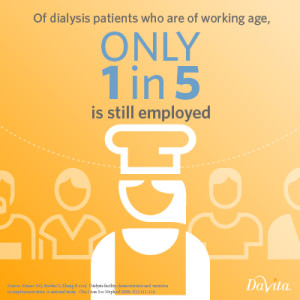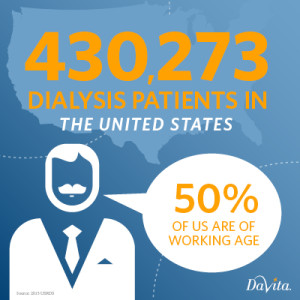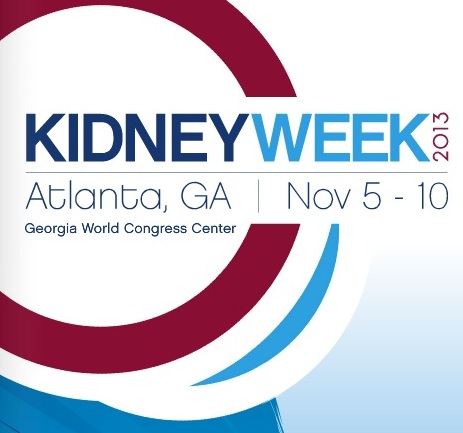January 17, 2014
Kidney Care Trends That Will Shape 2014
It’s the beginning of a new year, and that means medical professionals are setting goals to further improve health outcomes for their patients. This is particularly important for patients who suffer from complex, chronic illnesses.
I’ve compiled a list of trends that I predict will play a large part in shaping kidney care during 2014, with a focus on patients with end stage renal disease (ESRD).
 Working patients. This was a hot topic closing out 2013 and will continue to gain attention throughout 2014. Admittedly, for some patients there are medical reasons that prevent them from  working when on dialysis; however, I foresee the kidney care community turning its focus toward the education of patients, employers and the public about the benefits of continuing to work despite being on dialysis. A key part of this educational effort will be an emphasis on treatment options for patients who can continue working. For such patients, the use of home dialysis modalities is particularly helpful. Read more…
Working patients. This was a hot topic closing out 2013 and will continue to gain attention throughout 2014. Admittedly, for some patients there are medical reasons that prevent them from  working when on dialysis; however, I foresee the kidney care community turning its focus toward the education of patients, employers and the public about the benefits of continuing to work despite being on dialysis. A key part of this educational effort will be an emphasis on treatment options for patients who can continue working. For such patients, the use of home dialysis modalities is particularly helpful. Read more…

 I was speaking to a group of end stage renal disease (ESRD) patients at a symposium recently and met a 50-year-old man with polycystic kidney disease who had just started on in-center hemodialysis. He had been followed by a nephrologist for a number of years prior to progressing to ESRD, and had been well prepared by conventional standards to start dialysis while being placed on the cadaver transplant list. He had an arteriovenous fistula, and began dialysis uneventfully as an outpatient. He said that physically he was adapting well to dialysis, but was concerned and depressed because he quit his job when he knew dialysis was imminent. His doctor had not had a conversation about this issue with him and he didn’t know what to do or how he was going to continue to take care of his family. He asked me why dialysis patients had to stop working and he was surprised to hear me say that he could continue working, and that his doctor and dialysis facility should be helping him work through this issue and get back to work. This story is only too common.
I was speaking to a group of end stage renal disease (ESRD) patients at a symposium recently and met a 50-year-old man with polycystic kidney disease who had just started on in-center hemodialysis. He had been followed by a nephrologist for a number of years prior to progressing to ESRD, and had been well prepared by conventional standards to start dialysis while being placed on the cadaver transplant list. He had an arteriovenous fistula, and began dialysis uneventfully as an outpatient. He said that physically he was adapting well to dialysis, but was concerned and depressed because he quit his job when he knew dialysis was imminent. His doctor had not had a conversation about this issue with him and he didn’t know what to do or how he was going to continue to take care of his family. He asked me why dialysis patients had to stop working and he was surprised to hear me say that he could continue working, and that his doctor and dialysis facility should be helping him work through this issue and get back to work. This story is only too common. 


